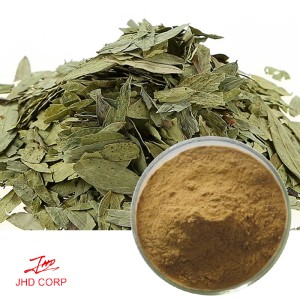The Safety of Senna Leaf Extract in Weight Loss Products
While senna leaf extract is effective as a short-term remedy for constipation, its safety in weight loss products is debatable. The temporary reduction in water weight does not equate to meaningful or lasting fat loss; prolonged use can lead to serious health complications.
Senna leaf extract, derived from the Senna plant, is commonly used as a natural laxative and is often included in weight loss products. While its primary use is to relieve constipation, its inclusion in weight management supplements has raised questions about its safety and efficacy.
How Senna Works
Senna contains compounds called sennosides, which stimulate the muscles in the intestines to promote bowel movements. This action can result in temporary weight loss due to eliminating water and waste from the body. However, it is important to note that this weight loss is not related to fat reduction but rather the loss of fluids and intestinal content.
Potential Risks and Side Effects
The use of organic senna leaf extract, particularly over an extended period or in excessive amounts, can pose several health risks:

1. **Dehydration and Electrolyte Imbalance**:
Frequent use of senna can lead to dehydration and the loss of essential electrolytes like potassium. This can result in muscle cramps, weakness, and irregular heart rhythms.
2. **Dependency**:
Long-term use of senna may cause the body to become reliant on laxatives for normal bowel movements, leading to a condition known as laxative dependency.
3. **Gastrointestinal Irritation**:
Some individuals may experience abdominal cramping, diarrhea, or discomfort after using products containing senna.
4. **Potential Liver Damage**:
While rare, there have been reports of liver toxicity associated with excessive or prolonged use of senna.
5. **Not Effective for Fat Loss**:
Since senna primarily affects water weight, its use does not contribute to sustainable fat loss or long-term weight management.
Guidelines for Safe Use
The U.S. Food and Drug Administration (FDA) classifies senna as generally safe when used as directed for short-term relief of constipation. For weight loss purposes, however, its safety becomes more questionable. Experts recommend avoiding laxatives like senna as a method for losing weight, as it does not address the root causes of weight gain and may lead to adverse health effects.
If you choose to use senna-containing products, it is crucial to follow the recommended dosage and limit use to a maximum of seven days unless otherwise directed by a healthcare professional. Pregnant or breastfeeding women, as well as individuals with underlying health conditions, should consult a doctor before using senna leaf extract sennosides.















